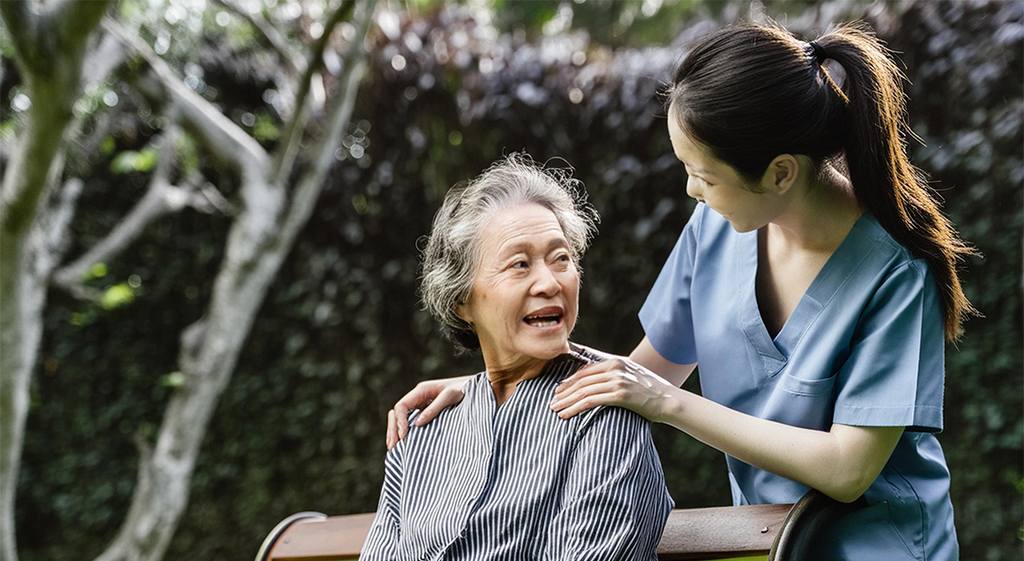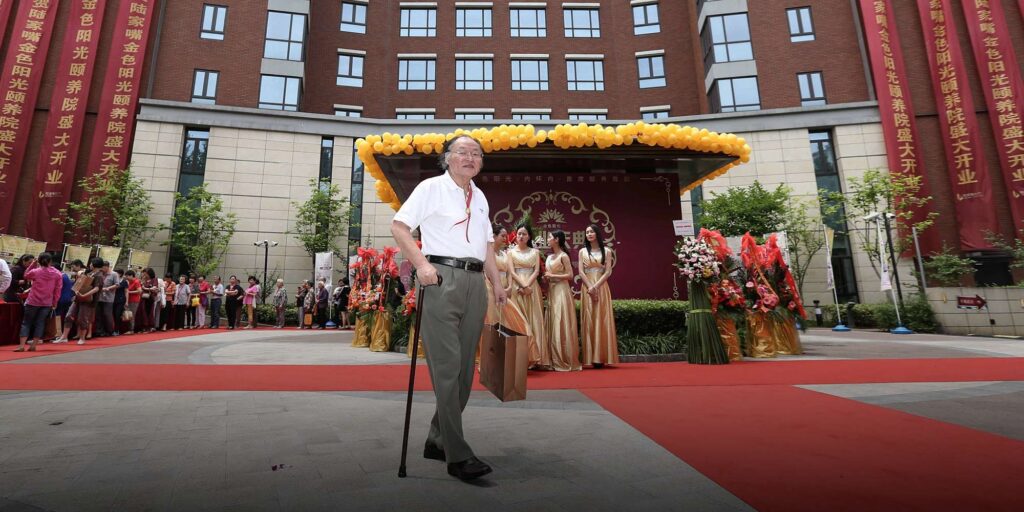China is home to the world’s largest ageing population—more than 280 million people aged 60 and over, and that number is growing fast. In response, China is undergoing a quiet revolution in aged care, with a surge in residential care facilities, innovations in elder support services, and a rising interest in international standards of care.

For expats living in China or families seeking residential care for elderly loved ones—whether Chinese or foreign—there are an increasing number of options emerging that offer comfort, safety, and professionalism in both urban and provincial settings.
A Cultural Shift: From Family Care to Professional Aged Care
Traditionally, elder care in China was provided by family, particularly adult children. But with smaller families, urbanisation, and longer lifespans, this model is no longer sustainable for millions.
The government has recognised this shift and introduced policies encouraging the development of professional residential care services—including public-private partnerships, foreign investment, and high-tech innovations in elder health.
Types of Residential Aged Care in China
1. State-Run Facilities
Often lower in cost but with long waiting lists, these homes are generally geared toward low-income or childless elderly citizens. Services can vary widely in quality.
2. Private Retirement Communities
These are rapidly growing in number, especially in cities like Beijing, Shanghai, Shenzhen, and Chengdu. Many cater to middle- and upper-income seniors and offer services that include private rooms, onsite healthcare, physical therapy, dining, and social activities.
3. International Joint Ventures & Luxury Homes
Some facilities are co-developed with foreign operators and designed with international standards—ideal for expats, returning overseas Chinese, or families seeking Western-style care. These centres often include memory care, 24-hour nursing, rehabilitation, and hotel-style living.
4. Integrated Medical-Elderly Care
A growing model in China blends medical clinics or hospitals with long-term residential care. These hybrid facilities aim to address both daily living support and chronic condition management under one roof.
What Services Are Included?
Residential aged care in China typically includes:
- 24/7 support for daily living (bathing, dressing, mobility)
- Medication management and nursing care
- Onsite clinics or medical partnerships
- Nutritious, Chinese-style meals with dietary adjustments
- Daily activities and exercise programs
- Memory care and dementia support (in select centres)
- Rehabilitation services (post-stroke, orthopaedic, etc.)
Where Are the Facilities Located?
The bulk of high-quality aged care homes are in or near major metropolitan areas such as:
- Beijing – Home to many pilot government programmes and upscale private facilities
- Shanghai – An ageing megacity with a strong demand for luxury and bilingual aged care
- Guangzhou & Shenzhen – Rapidly modernising cities with access to healthcare hubs
- Chengdu & Hangzhou – Popular for their lifestyle appeal and growth of wellness-focused facilities
Smaller cities are also beginning to develop care options, particularly those with favourable land and supportive local policies.
Costs of Residential Aged Care in China
Monthly costs vary greatly depending on location, facility type, and care level. Here’s a general guide (in AUD):
- Basic shared accommodation in public home: $500–$1,000/month
- Mid-range private facility: $1,500–$3,000/month
- Luxury/international standard residence: $3,000–$6,000+/month
Some facilities operate with a large one-time admission fee, while others follow a monthly rental model with care packages added.
Challenges for Expats
While China’s aged care sector is expanding rapidly, it’s not without challenges for non-Chinese residents:
- Language barriers – English-speaking staff are still rare outside top-tier or expat-targeted homes.
- Visa and residency issues – Long-term stays for elder relatives may involve bureaucratic hurdles.
- Cultural differences in care style – Traditional Chinese medicine and dietary practices may differ from Western expectations.
However, high-end homes with international partnerships are working to bridge these gaps.
The Future of Aged Care in China
China is investing heavily in AI, robotics, and smart elder care technology. Wearable health monitors, fall detection, and remote care are already being piloted in many urban homes. Meanwhile, training standards for elder care workers are being upgraded, and government policy is strongly encouraging private sector growth.
As China navigates the needs of an ageing society, it’s clear that residential aged care is becoming more professional, diversified, and accessible—offering new options for seniors both local and foreign.
Is Residential Care in China Right for You or a Loved One?
If you’re an expat or have elderly family members living in China, it’s worth exploring the growing network of aged care services. Be sure to:
- Visit multiple facilities if possible
- Ask about medical partnerships and staff qualifications
- Clarify language support and communication with families
- Understand the payment model and refund policy
Whether you’re looking for affordability, cultural familiarity, or international-standard comfort, China’s aged care sector is evolving to meet a wide variety of needs.


